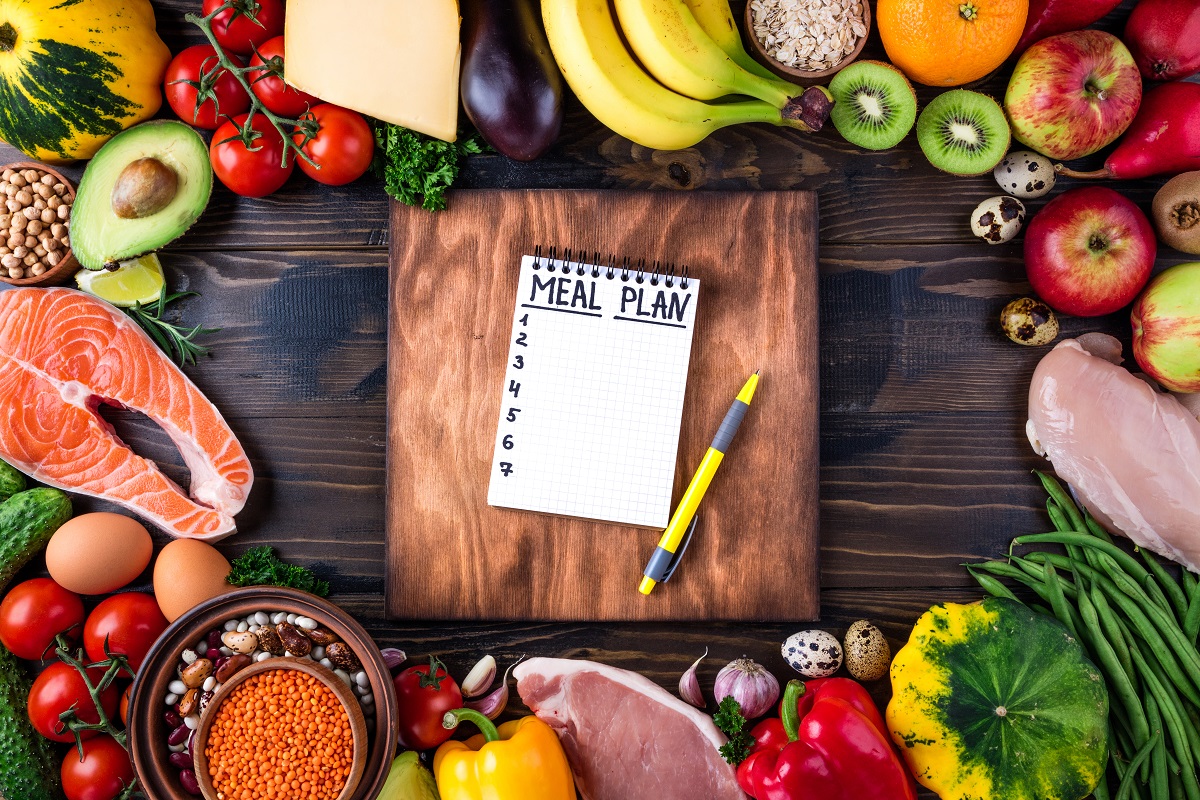When an elderly parent lives with you, your menu planning for them should be healthy and include the proper balance of protein, carbohydrates, fats, fiber, and vitamins. The menu should include what they enjoy eating with the needs to watch calories and observe health restrictions they may have. A 7-day meal plan will get you on track.
Older adults often struggle with getting adequate, proper nutrition for a variety of reasons. Sometimes the elderly start to lose their appetite due to other health conditions or lose their sense of smell or taste which causes them to eat less. Other times, preparing food is too hard.
Eating well ensures proper nutrition, facilitates better health, and prevents disease. Eating better is not always easy, especially for seniors on a budget. We have put together tasty, appealing menu ideas for you that will promote eating healthy food and include all food groups without breaking the bank.
Why Is Good Nutrition Especially Necessary For The Elderly?
Adequate nutrition is essential for everyone, but for elderly people, it is even more so.

- Energy: Healthy eating ensures you meet the nutritional requirements necessary to have a strong energy level, especially if you engage in physical activity.
- Disease Prevention: Many diseases and illnesses can be prevented by meeting the recommended amounts of vitamins, minerals, caloric intake, etc.
- Blood Pressure Regulation: Eating meals low in sodium is a good way to avoid high blood pressure.
- Heart Health: In addition to eating healthy meals ensured that meet all nutritional needs, staying away from fatty foods is an excellent way to better heart health.
- Control Blood Sugar: One way to decrease your chances of getting diabetes, or to keep diabetes under wraps, is to eat a diet low in sugars.
- Bone Strengthening: Getting a good amount of Vitamin D in your diet can strengthen your bones and help prevent osteoporosis.
- Weight Control: As we age, carrying extra weight can lead to health problems. A balanced, healthy diet without added sugars can be easy if you use naturally sweet fruits to curb your sweet tooth!
What Nutritional Elements Should Be Included In A Senior’s Diet?
There are many elements to providing a senior citizen with a balanced diet. According to the current food pyramid, the senior diet should include foods from the various groups and be the healthiest choices within the groups.
50% fruits and vegetables
When making vegetable decisions, remember that the more color variety you have in your diet, the better off you are. For example, instead of just eating green peppers, mix them up with orange, red, and yellow also.
Cover your plate with everything from zucchini, carrots, peppers, green beans, and every other veggie.
Vegetables like carrots and zucchini can be the stars of a delicious stir-fry in healthy fats such as olive oil and seasoning.
Sometimes people forget that fruit is not just for breakfast. Keeping cut-up fruit in the refrigerator will make it easy to grab for a meal or a snack.
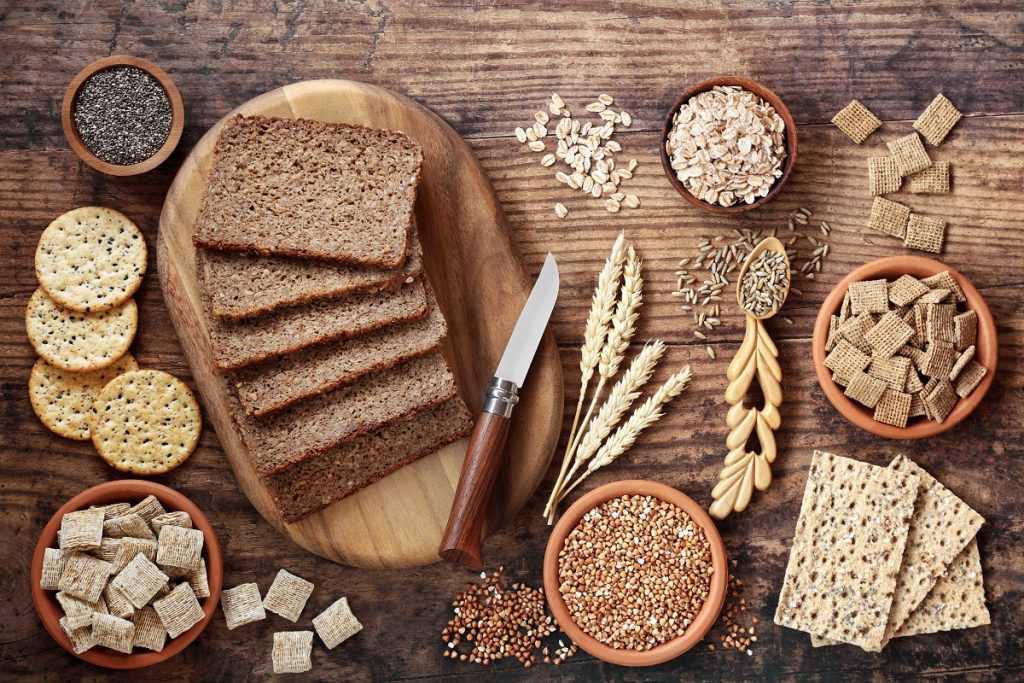
25% grains, mostly whole grains
Whole-grain bread is delicious and good to eat, but you can also have grains like steel-cut oats, quinoa, brown rice, and barley.
Steer away from white potatoes in favor of sweet potatoes.
25% protein-rich food
Lean meats such as fish, turkey, and chicken breast are healthier options than red meat. Legumes like beans, peas, and lentils are beneficial fibers that are also inexpensive.
Choose low-fat dairy products to round out your diet. Dairy products provide an easy way to add some calories for older adults who are underweight. A glass of milk, some cheese, or even a yogurt parfait makes a good meal accompaniment.
Seniors should also be sure to drink an adequate amount of water to ensure proper hydration.
Diets For Special Needs
Heart-Healthy Diet
Eating heart-smart lowers blood pressure, reduces cholesterol, and helps keep weight at a healthy level – all steps that reduce the chances of heart disease.
According to the Mayo Clinic, a heart-healthy diet keeps several things in mind:
- Control Portions: Do you find yourself overeating? Measuring out your food ahead of time, limiting portions by using a smaller plate, and meal planning are all ways to control your eating.
- Increase Your Fruit and Veggie Intake: Eating more fruits and vegetables is not only a good source of fiber, but these foods also are low-fat and help prevent heart disease.
- Select Whole Grains: An excellent source of fiber, selecting whole grains instead of things like white rice or white bread and making other choices are good for us.
- Limit Unhealthy Fats: While there are good fats that your body needs, most Americans indulge in the unhealthy kind.
- Choose Lean, Low-fat, Protein: Fish is a great source of protein because it is lean and also rich in Omega-3. You consider more white meats such as chicken or turkey and less red meats.
- Limit Salt: Eating less processed foods, cooking with salt-free seasoning, and not adding salt to your food post-cooking are all ways to limit sodium.
- Devise A Meal Plan: Creating a healthy meal plan ahead of time often helps foster good eating habits. You are also less likely to reach for unhealthy snacks if you have healthy options prepped and ready to go.
- Treats in Moderation: If you try to give up treats and sweets altogether, you are unlikely to succeed. Instead, consider having the things you crave in moderation.
A Low-Sodium Diet
Sodium is an important mineral that is naturally found in some foods. However, it can also be a recipe for dietary disaster if you are not careful. If your doctor encourages a low-sodium diet, here are some tips.
- Do not add salt to your food.
- Avoid processed foods, and eat fresh when you can. Canned soups, frozen meals, and packaged and boxed foods are usually high in salt.
- Stay away from fast food as it tends to be high in fat and sodium.
- Season with spices instead of salt-based seasoning.
Diabetic Diet
If you have diabetes, or your physician has concerns about the potential that you might become diabetic, you can consider controlling this through diet.
The diabetic diet is strikingly similar to the other healthy diets described above.
A diabetic diet pays special attention to limiting carbohydrates. Many people don’t realize that even natural sugars can impact a person negatively.
In conjunction with a healthy diet, regular exercise is important.
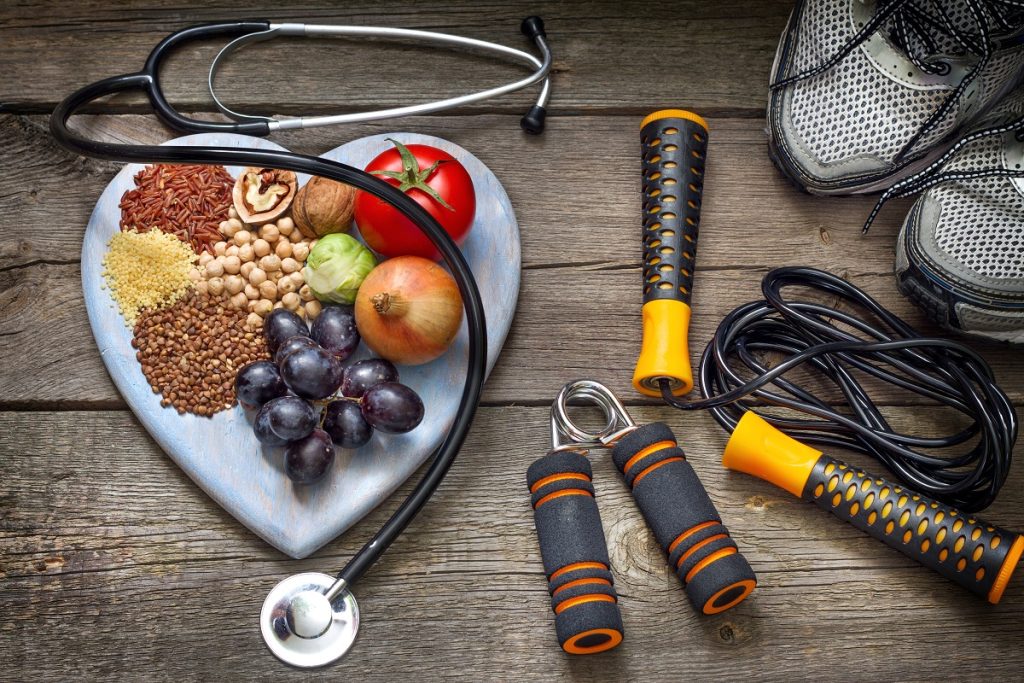
Should There Be Any Restrictions In Senior Diets?
Restrictions in diet are based on any health needs and concerns of the person’s physician and family. A doctor or dietitian can help make dietary decisions and suggest changes in the diet.
The government, the American Heart Association, and other bodies have laid out the path to healthy eating. Mediterranean diets popular in Europe have long emphasized eating vegetables and lean protein for decades.
Not needing a restricted diet does not mean rejecting good advice about healthy eating is a good idea. Even seniors with minimal risk for heart attacks, high blood pressure, or diabetes should follow the food pyramid in planning their meals, keeping their weight under control, and exercising.
Fast food and junk food are not healthy options for anyone.
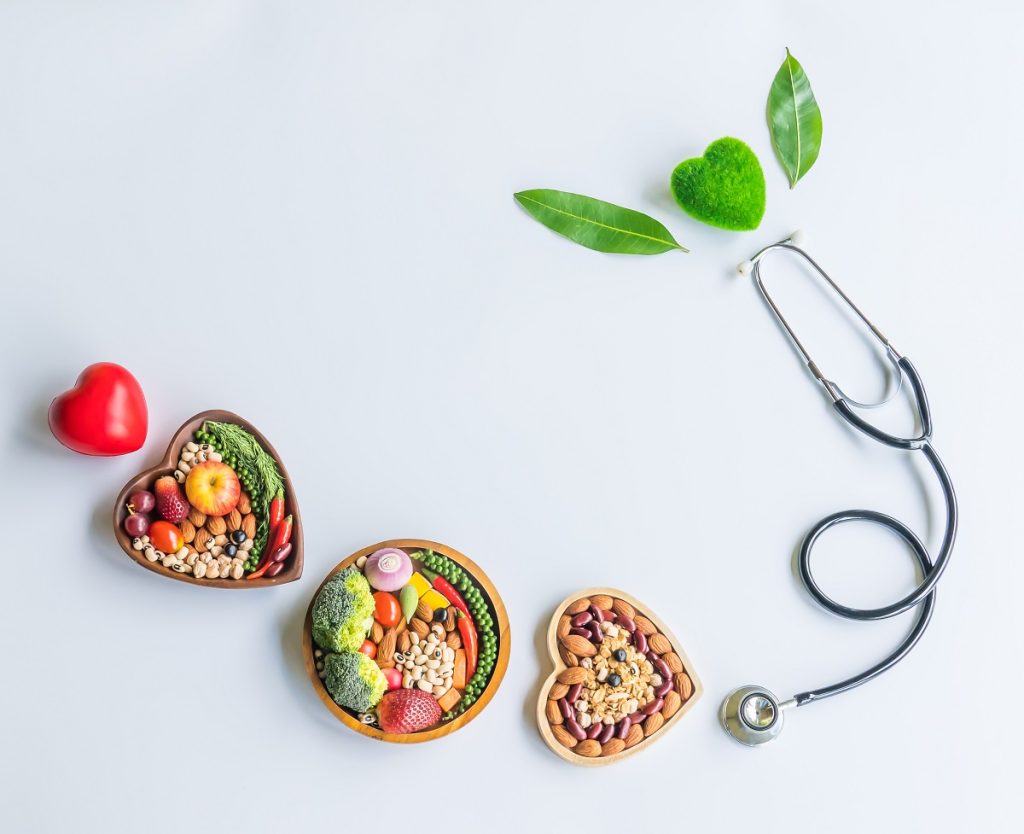
What Should Be Included In A 7-Day Meal Plan For Elderly Family members?
To encourage older adults to eat healthily, meal planning is a must. Leaving meals to chance opens the door to poor choices.
When planning, you need to keep in mind that the meals should come from all of the food groups. In addition, be sure that you are fulfilling any dietary requirements or restrictions set forth by the doctor or dietician.
The best meal plans are also tasty and appealing.
Breakfasts
Easy breakfasts are a must for older adults who are living alone. Some options are:
- Greek yogurt with fresh fruit or granola
- Omelet with vegetables and whole grain toast
- Hard-boiled eggs with fruit
- Toast or bagel with nut butter
- Oatmeal with a side of lean meat such as ham
- Fruit smoothie
- Protein shake made with dairy products such as milk or yogurt
Lunches
Lunches should also be easy. Grab-and-go things can be helpful. Food prepping makes it more likely that your loved one will eat a nutritious meal. Looking for some easy mix-and-match items?
Main Items:
- Ham and Cheese tortilla wrap
- Egg, Tuna, or Chicken salad
- Chicken breast with brown rice
- Vegetable or Chicken Soup
- Peanut Butter (or other nut butter) on bread or toast
- Salad
Sides:
- Vegetables with hummus or dip
- Baked chips
- Cut up fruit
- Broccoli salad
- Pasta salad with veggies
- Cheese and lean meat sticks
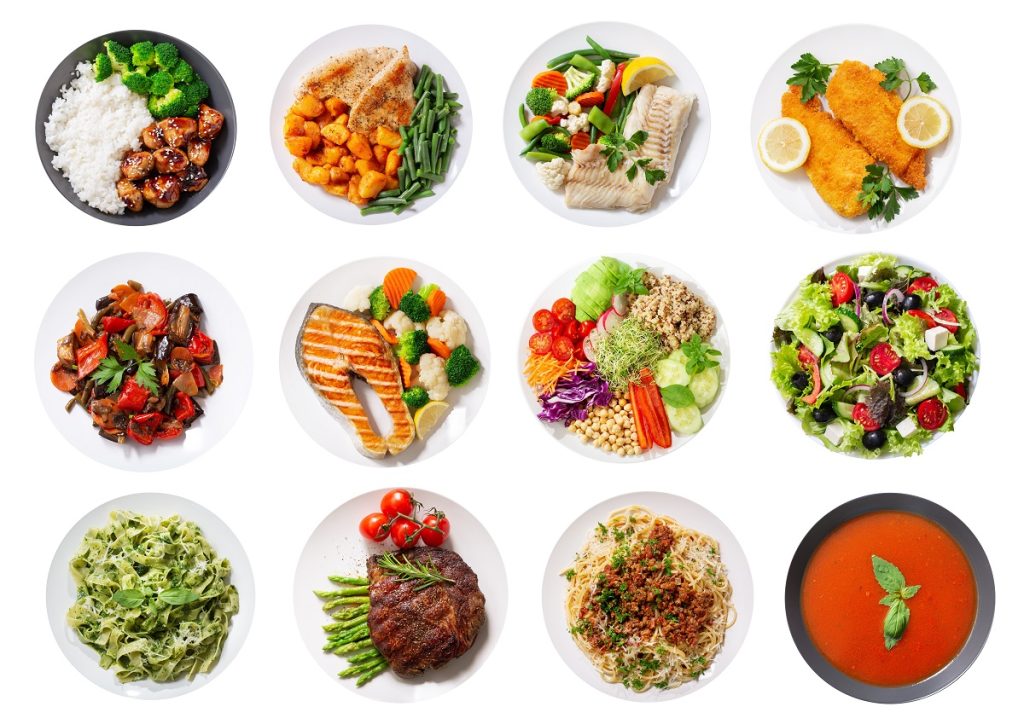
Dinner
Dinner needs to be both healthy and appealing. For each meal, aim to have lean protein, generous amounts of vegetables, whole grains, and perhaps some type of dairy.
Lean Protein Options:
- Fish
- Chicken
- Turkey
- Center-cut pork
- Eggs
What Are Healthy Snacks For Seniors?
Looking to prep some healthy snacks for your senior citizen loved one? We have some great ideas!
- Fresh veggies and hummus
- Celery and peanut butter
- Fresh fruits (apples, oranges, blueberries, strawberries, etc. are easy grab-and-go fruit options)
- Hard-boiled eggs
- Greek yogurt
- Whole wheat bread with nut butters
- Tortilla with lunchmeat and cheese

